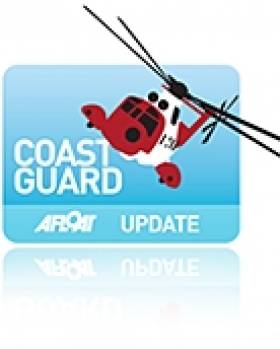Displaying items by tag: NOFI Current Buster 6
Coastguard Oil Spill Equipment Tested on Belfast Lough
#marinepollution – New high-tech equipment that can be deployed anywhere in the UK to clean up oil spills is today being put to the test in Belfast Harbour.
The Maritime and Coastguard Agency (MCA) has recently purchased two new pieces of equipment known as the NOFI Current Buster 6. This is the very latest in up to date technology and was developed following the Deepwater Horizon oil spill response in 2010.
The latest piece of kit can operate five times faster, as the hydrodynamic shape reduces the drag force and allows the system to move more easily through the water. This model also has debris nets, wave dampers and a splash-over cover to avoid spillages. With an oily water separator it has a temporary storage capacity of 70m2.
The MCA is often called upon to deal with a wide range of pollution incidents off the UK coast and has a detailed plan of action and equipment in place to deal with such issues.
Gail Robertson, the MCA's Counter Pollution Resource Manager, said:
"The Maritime and Coastguard Agency has a thorough response procedure in place to deal with many different types of emergencies at sea that cause pollution, or threatens to cause pollution.
"Demonstrations like the one in Belfast Harbour today show how our equipment is fit for purpose. These two NOFI Current Buster 6 will enhance and boost our response capability around the whole of the UK."
Attending the demonstration, Environment Minister Mark H Durkan said:
"There have been some major oil spills at sea in recent years in other parts of the world, which caused devastating damage to the marine and coastal environment and to the wider economy in those regions. Given that the North of Ireland imports all of its oil by sea and that several major shipping routes pass close to our coast, it is not inconceivable that a serious marine oil spill could occur on or close to our coastline. It is therefore vital that we tackle such incidents with the most modern of technology. The fact that we now have equipment which is five times faster in cleaning up such serious pollution is most welcome."
























































